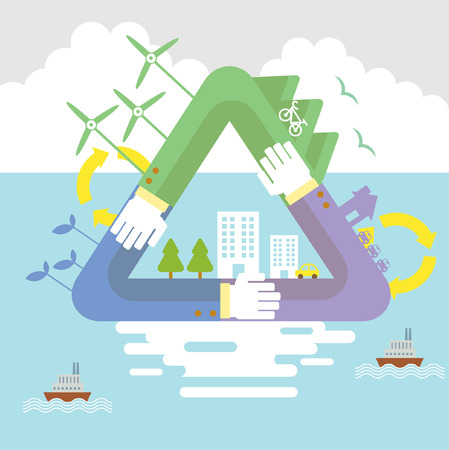
PME Appoints New CEO
December 18, 2014
Harmful Algal Blooms in Chesapeake Bay
September 7, 2016One of the major environmental issues facing our generation today is the declining quality of our waterbodies. From underground aquifers to the ponds found in neighborhoods across the globe, each water source has a diverse array of economic and esthetic advantages.
We are currently living in a period of history associated with higher levels of global pollution. From pharmaceutical impacts, to excess plastics and garbage, there are many threats to the water sources that we rely on to survive. The full or partial loss of any waterbody can have a severe impact on the overall health of a community.
Water Quality and Real Estate Prices
One often overlooked impact of water quality is its relationship with real estate valuation. Numerous studies have shown that water quality has a direct impact on real estate prices. One study by the Florida Realtors Association found that a single county saw an accumulative property value increase of around $541 million due to improved water quality in the region.
Furthermore, these studies find that one of the key factors in determining water quality and real estate valuation is water clarity. As water clarity decreases, the desire to use the water decreases, which reduces the desirability and value of the surrounding real estate.
While there are many reasons why water clarity can change, it is often the result of an algal bloom due to over-accumulation of nutrients in the water. This process, which is scientifically known as eutrophication, can lead to great economic losses for people and cities alike.
Economic Impact
The health of local waterbodies is extremely important for the overall economy of any given state. According to the Maine Department for Environmental Protection (Maine DEP), almost 60% of municipal revenues in the state of Maine are generated from taxes on property. In the city of Belgrade, for example, 60% of property taxes come from lakefront homes and studies suggest that if water clarity were to decline by one meter of visibility, the city would lose $10.5 million (or 5%) in property value.
These values do not take into consideration the recreational values of clean water. According to Maine’s DEP, residents spend a grand total of more than $153 million every year on recreational activities and 59% of that is spent in neighborhoods that are near lakes or other waterbodies. This supports an economic turnaround of jobs for as many as 3,000 people, generating a revenue of %30 million in income for the state’s residents.
What Homeowners Can Do to Help?
As homeowners, it is our duty to help make sure that the water quality of the lake sand ponds in our neighborhoods are maintained at a high level.
Organize and Lobby
Local city councilors and elected officials are the best avenues to get our voices heard and our grievances addressed. We can organize written signature campaigns or form welfare associations can collectively bargain for cleaner waterbodies near our homes. We can also lobby for politicians to sponsor bills and pass laws that protect the waterbodies from future pollution.
In addition to the governmental approach, it is important to look for environmental NGOs and rally for their support. We can volunteer for these NGOs ourselves and work towards a common goal. START has a great resource to learn about different NGOs working on environmental issues.
Donate
It can be difficult to know exactly where to donate in order to help improve the quality of community waterbodies. It takes a little bit of research and digging to find the best organizations to support. Fortunately, there are also many companies committed to helping scientists and researchers improve our water quality, such as Precision Measurement Engineering Inc., located in Southern CA.
Look for national organizations that are known for their proper use of funds. To get started on the research, Mother Earth News has an informative article highlighting 10 great environmental organizations.
Colleges and universities are also excellent resources when it comes to gathering information about community organizations that share a mission to make our environment more livable and protect it against pollution and degradation.
Educate the Youth
Finally, there is no long term gain without making sure that future generations are involved in the effort to conserve and protect our water. We can organize workshops for children and teens that focus on the importance of waterbodies and their multiple economic and aesthetic values. We can also teach our kids about the benefits of community organization in protecting our natural wealth from long term degradation
Remember that children tend to mimic the behavior of the parents and people they admire. We must be sure to set good examples for our children by never polluting a waterbody or any natural habitat. It’s our duty to show the youth how to care for the environment. By doing this, we instill important values that will help our neighborhoods stay clean and healthy in the future.
Final Thoughts
There is so much to gain from improving our water resources. It is important to follow water quality news and stay informed of the issues facing our communities. Fortunately, there are also many companies committed to helping scientists and researchers improve our water quality, such as Precision Measurement Engineering, Inc., located in Southern California.
From increased property values to healthier flora and fauna, clean water is something everyone can benefit from.
Author Bio: Evan Harris is the owner of SD Equity Partners. With over seven years of experience managing SD Equity Partners, Evan is an expert in property valuation, hard money lending, and real estate financing.



